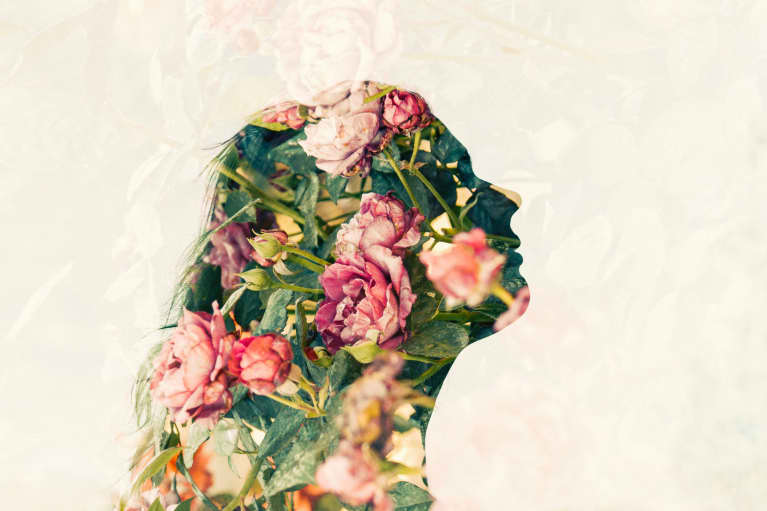Is This Psychedelic The Future of Depression Treatment? ( courtecy;- Darcy McDonough By Darcy McDonough mbg Health and Nutrition Writer )
Is This Psychedelic The Future of Depression Treatment?
July 8, 2018 — 9:30 AM
Alternative therapies and medicinal plants are definitely having a moment. Last week the FDA approved a seizure medication derived from cannabis, and now ayahuasca, a psychedelic drug, is being studied as a treatment for depression. Despite its questionable legal status, ayahuasca has been finding its way into mainstream culture on shows like Weeds and in the Ben Stiller movie While We're Young for years. In the wellness world, the hallucinogenic drug has become a trendy gateway to cleansing and spiritual awakening with ayahuasca ceremonies held in yoga studios and organized trips to South America (think a yoga retreat but with an added element).
Ayahuasca is a combination of brewed plants that has traditionally been used for spiritual and religious purposes by indigenous people of the Amazon Basin. In the 1960s many psychedelics, including ayahuasca and LSD, were studied for their promising psychiatric benefits, but a change in regulations and stigmatization due to increased recreational use made hallucinogenic research hard to pursue for decades. Scientific advances in how we study and understand the brain has renewed interest in psychedelics, though, and new research is making a case for the use of ayahuasca as a powerful antidepressant.
And while this might sound extreme—especially when we have already-approved pharmaceutical drugs for depression on the market—we're actually in desperate need for better therapies for depression. Unfortunately, standard depression treatment therapies like SSRIs are not effective for everyone. About 30 percent of those with major depression are treatment-resistant. For these individuals, standard drug therapies and counseling may not help, and symptoms often return.
In a new study, published in Psychological Medicine, individuals with treatment-resistant major depression were given a single dose of ayahuasca or a placebo. Those who received the ayahuasca saw significant improvements in their depression symptoms for the following 21 days.
Researchers believe ayahuasca may serve as a powerful antidepressant because of its direct effect on the brain. It's been shown to increase blood flow to left nucleus accumbens and subgenual areas and right insula—which are all areas associated with mood and emotion. Interestingly, participants who reported the most intense hallucinogenic experiences on ayahuasca had the greatest reduction in depressive symptoms.
Although this was a small study, with only 29 participants, and many experienced nasty side effects including nausea and vomiting, the results are promising, and we'll be following along. When it comes to mental health, to medicate or not is an extremely personal decision. Here's to hoping that more natural options—that are also effective—will be available in the future!
Read more mbg health news here.


মন্তব্যসমূহ
একটি মন্তব্য পোস্ট করুন